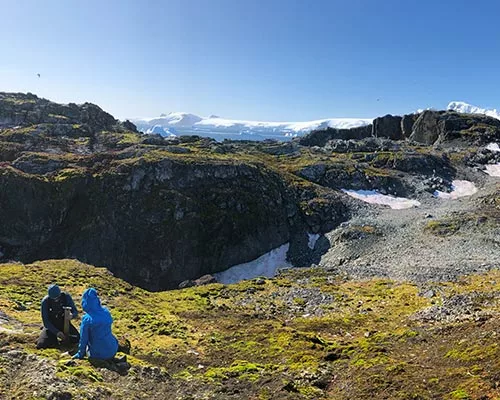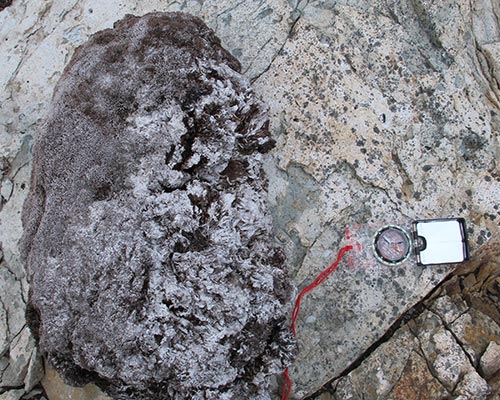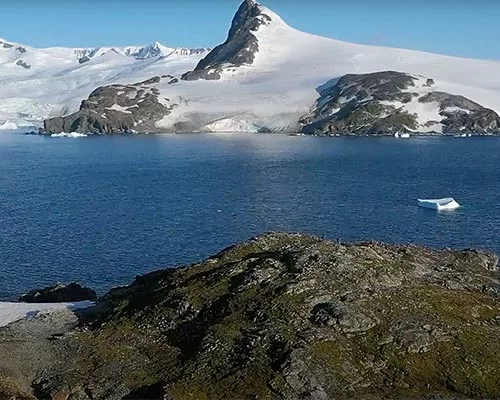As glaciers in Antarctica have melted, previously ice-entombed black mosses have been exposed. A team ofresearchers conducted extensive analyses on these mosses discovered in the northern Antarctic Peninsula, which revealed sensitive glacier behavioral responses to the climate over the past 1,500 years.
The findings, published in the Geological Society of America journal Geology, the top-ranked publication in the field of geological sciences, provide a clearer picture of climate and ice history in the region.
Principal investigator is David W. Beilman, professor and undergraduate chair of the Department of Geography and Environment in UH Mānoa’s College of Social Sciences.
“The Antarctic Peninsula is a high-biodiversity coastal ecosystem that is one of the richest breeding grounds for penguins, seals and seabirds in the continent. What happens there has global impact including the influence of sea-level rise as ice melts,” said Beilman. “There are great scientific models of glacial expansion and recession, but much less is known about what happens on the ground at sea level where ice, ocean and sensitive coastal life intersect. Our field research addresses this gap and improves our understanding of these ecosystems and the changes resulting from polar warming.”
Researchers collected dead black mosses along the edges of glaciers and nunataks — isolated rocky peaks projecting above ice or snow surfaces — at several locations in the northern Antarctic Peninsula. Mosses, one of the few types of plants found in Antarctica, are killed off when approaching glaciers cover them with ice.
Using radiocarbon dating, researchers were able to reconstruct an accurate timeline of when past glacial expansion occurred, and found evidence of three periods of glacial advance in the region over the past 1,500 years. The kill dates of the youngest dead plants were the same as the ages of many penguin remains, indicating that the most recent advance happened at the same time that several penguin breeding grounds were abandoned.


